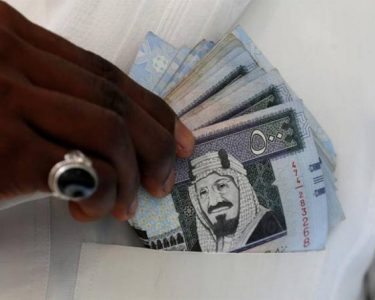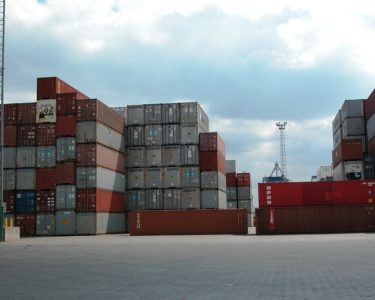.
Pakistan’s long-term foreign currency issuer default rating (IDR) received a boost as global rating agency Fitch upgraded it from ‘CCC-‘ to ‘CCC’ on Monday.
The upgrade was attributed to enhanced external liquidity and improved funding conditions, which were a result of the recent staff-level agreement between Pakistan and the International Monetary Fund (IMF) on a nine-month Stand-by Arrangement (SBA) in June.
The country had secured a badly-needed $3 billion short-term financial package from the IMF earlier this month, giving the economy a much-awaited respite as it teeters on the brink of default.
The executive board of the IMF will meet on July 12 to review the $3 billion Stand-by Arrangement (SBA) for Pakistan.
“We expect the SLA to be approved by the IMF board in July, catalysing other funding and anchoring policies around parliamentary elections due by October,” Fitch said in a statement while talking about IMF-driven reforms taken by the government.
Read more: Fitch downgrades country’s IDR to ‘CCC+’
However, the rating agency said the IMF programme implementation and external funding risks remain due to a volatile political climate and large external financing requirements.
The statement said that Pakistan has recently taken measures to address shortfalls in government revenue collection, energy subsidies and policies inconsistent with a market-determined exchange rate, including import financing restrictions. “These issues held up the last three reviews of Pakistan’s previous IMF programme, before its expiry in June,” it added.
Most recently, it said, the government amended its proposed budget for the fiscal year ending June 2024 (FY24) to introduce new revenue measures and cut spending, following additional tax measures and subsidy reforms in February.
“The authorities appeared to abandon exchange-rate management in January 2023, although guidelines on prioritising imports were only removed in June.”
Implementation risks
The rating agency said that Pakistan has an extensive record of going off-track on its commitments to the IMF. “We understand the government has already made all the required policy actions under the SBA. Nevertheless, there is still scope for delays and challenges to implementation as well as new policy missteps ahead of the October elections and uncertainty over the post-election commitment to the programme,” it added.
The statement said that the IMF board approval of the SBA will unlock an immediate disbursement of $1.2 billion, with the remaining $1.8 billion scheduled after reviews in November and February 2024.
“Saudi Arabia and the United Arab Emirates have committed another USD3 billion in deposits, and the authorities expect USD3-5 billion in other new multilateral funding after the IMF agreement.”
“The SBA should also facilitate disbursement of some of the $10 billion in aid pledges made at the January 2023 flood relief conference, mostly in the form of project loans (USD2 billion in the budget),” it continued.
Funding targets
The rating agency said that the authorities in Pakistan expect $25 billion in gross new external financing in FY24, against $15 billion in public debt maturities, including $1 billion in bonds and $3.6 billion to multilateral creditors.
“The government funding target includes USD1.5 billion in market issuance and USD4.5 billion in commercial bank borrowing, both of which could prove challenging, although some of the loans not rolled over in FY23 could now return. USD9 billion in maturing deposits from China, Saudi Arabia and the UAE will likely be rolled over, as in FY23.”
The Fitch report also noted that Pakistan’s current account deficit (CAD) has narrowed sharply, driven by earlier restrictions on imports and FX availability, tighter fiscal and economic policies, measures to limit energy consumption and lower commodity prices.
“Pakistan posted current account surpluses in March-May 2023, and we forecast a CAD of about USD4 billion (1% of GDP) in FY24, after USD3 billion in FY23 and over USD17 billion in FY22. Our forecast CAD is lower than the USD6 billion in the budget, on the assumption that not all of the planned new funding will materialise, constraining imports,” it added.
Talking about external deficit risks, the agency said that the CAD could widen more than it expects, given continued reports of import backlogs, the dependence of the manufacturing sector on foreign inputs, and reconstruction needs after last year’s floods.
Nevertheless, it added that currency depreciation could limit the rise, as the authorities intend for imports to be financed through banks, without recourse to official reserves.
“Remittance inflows could also recover after partly switching to unofficial channels to benefit from more favourable parallel market exchange rates,” it also said.
Following the statement, Finance Minister Ishaq Dar congratulated Prime Minister Shehbaz Sharif, the nation, government allies and economic team for the positive development.
Global Rating Agency “Fitch”
Upgrades Pakistan’s Long Term Foreign-Currency rating to CCC from IDR(Issuer Default Rating).Another positive news towards current economic revival journey, AlhamdoLilah.
Congratulations to PM @CMShehbaz ,the Nation, Govt Allies & Economic Team ?
— Ishaq Dar (@MIshaqDar50) July 10, 2023



